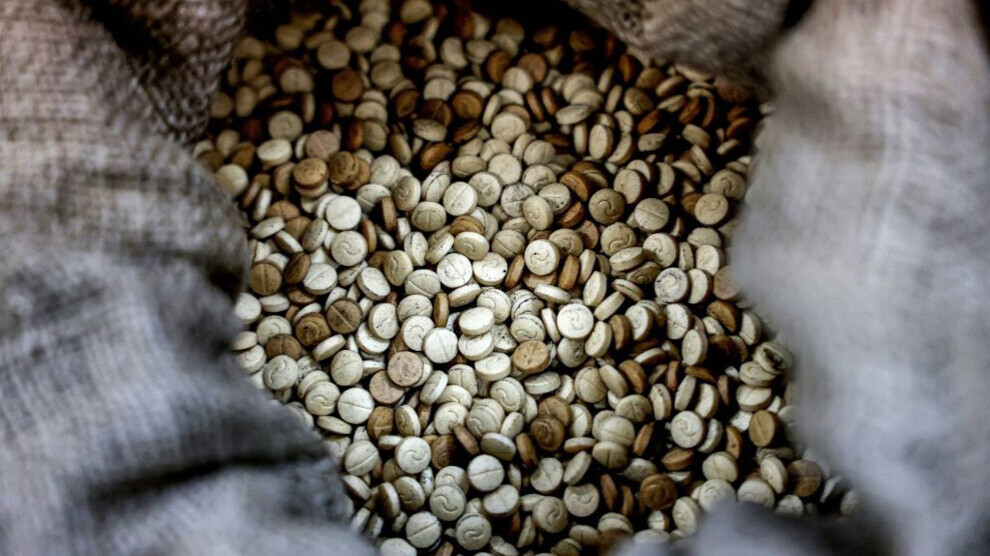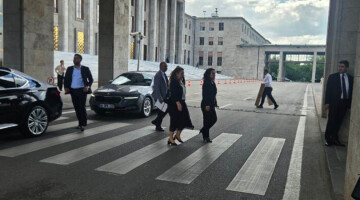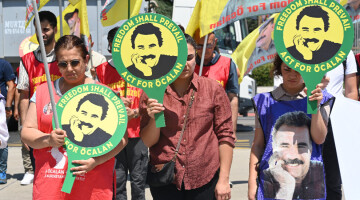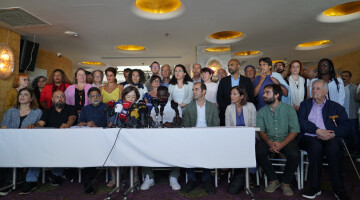The synthetic drug, “Captagon”, is said to be used widely by members of ISIS and Al-Nusra to survive pain and to gain courage. The drug is now produced in Syria, where it is exchanged with weapons in the Gulf countries.
Produced in small tablets, the drug is said to have a function for forgetting pain and fear. It has been widely used in the Syrian civil war which has claimed the lives of hundreds of thousands of people.
ISIS’s drug business has many times appeared in the media, while new evidence recently emerged in the Western media with testimonies of eye witnesses. It has emerged that the drugs are used not only by members of ISIS but also by members of Al-Nusra and the FSA.
Arte TV has broadcasted an interview with a drug dealer, who covers his face so as not to be recognised and explains the effects of Captagon tablets which he holds in his hand:
“You fight without feeling tired, you walk without looking in front of you and you do not have any fear. The fighters use the drug when they are on sentry duty, to control their nervousness as well as to increase sexual power. They do not care that this is banned by Islam as no one cares about Islam”.
In the meantime, a member of a Homs anti-drug team told Reuters about the strange behaviour of a person under the influence of Captagon: “We were beating him, he was not feeling anything; most of them were even laughing”.
Captagon was first produced in 1963 and was listed as psychotropic in 1986 by the World Health Organisation. It has been banned in many countries since then, while the French health security institution classified it as a drug.
The drug is not only used in the Middle East to avoid fear and to gain courage, but also contributes to the war economy as Syria has today turned the centre of its production and trade. Captagon was produced before 2011 in Lebanon, while it had been produced in Turkey and Syria at the beginning of the 2000’s and was sold to Gulf countries.
Another drug dealer told Reuters that the production of Captagon has fallen by 90% in Lebanon since the start of the war in Syria as the factories have been carried to Syria. Radwan Mortada, an expert on extremist groups, says that the Captagon trade has led to the emergence of a real war economy in the region, adding that it is produced in Syria but is exported mainly to Gulf countries. Mortada says the extremists buy weapons in return and finance their operations with the money they gain from sale of the drug.
The price of a package of 200 thousand tablets is said to be 1.2 million dollars. The highest demand comes from Saudi Arabia, where 55 million tablets are sold annually. However, this number is only10% of the real sales in Saudi Arabia, according to the 2013 figures of UN’s Office on Drugs and Crime. One tablet of Captagon is said to be sold in Syria from between 5 to 20 dollars.











